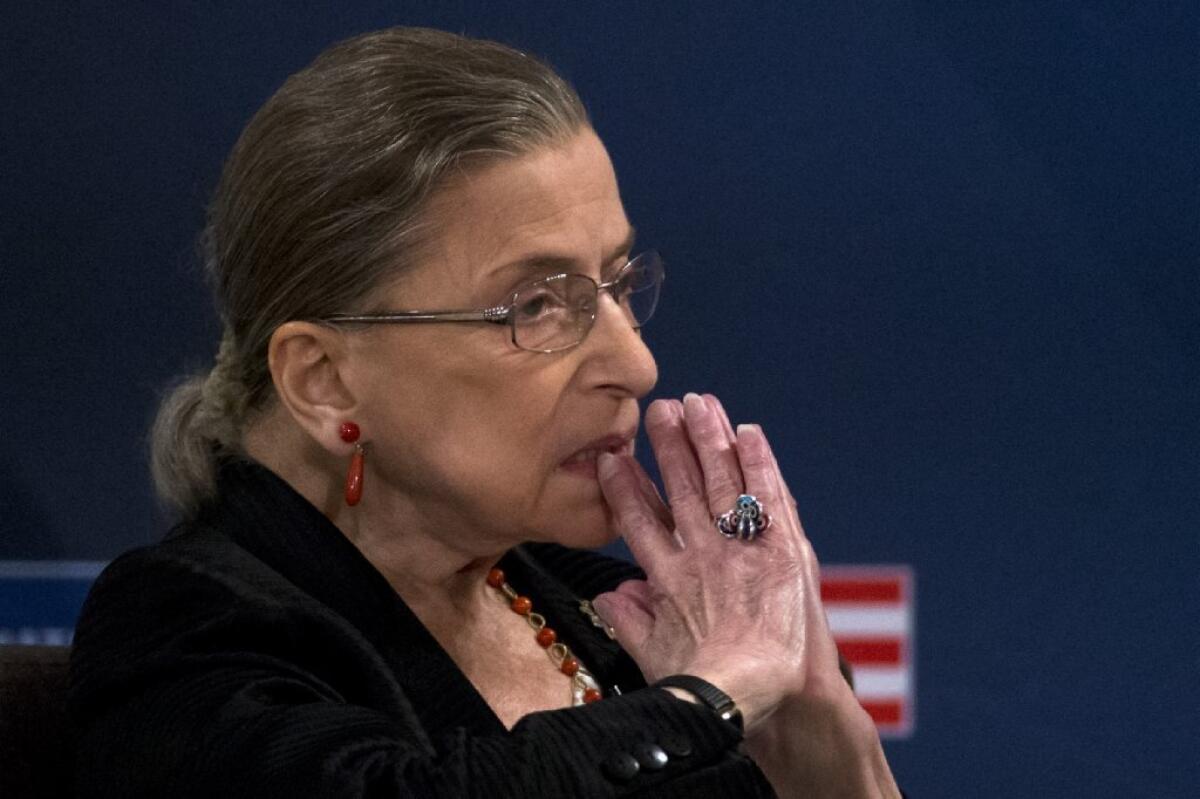When judges mouth off outside the courtroom

- Share via
Supporters of photo ID requirements for voters are fond of noting that the Supreme Court upheld Indiana’s ID law in a 2007 decision written by the then-dean of the court’s liberal wing, Justice John Paul Stevens. Now critics of voter ID laws, who portray them as an attempt to suppress the votes of racial minorities and other Democratic-leaning groups, have a comeback.
In a new book, the famously prolific Judge Richard Posner of the U.S. 7th Circuit Court of Appeals in Chicago writes that “I plead guilty to having written the majority opinion (affirmed by the Supreme Court) upholding Indiana’s requirement that prospective voters prove their identity with a photo ID — a type of law now widely regarded as a means of voter suppression rather than of fraud prevention.”
Mike Sacks of the Huffington Post asked Posner if “you and the court got this one wrong.” The judge replied: “Yes. Absolutely.”
Notwithstanding that dramatic quote, Posner rejects the idea that he’s flip-flopped. In the New Republic, he writes: “The point I was making in my book … was not that the decision was right or wrong (I was not, as one journalist has it, ‘publicly recanting’ I had not ‘switched sides’), but that in many cases judges can’t have any confidence in the soundness of their decisions if they do not have empirical data concerning the likely consequences of deciding the case one way rather than another.”
Recantation or not, Posner’s comments cheered critics of his decision and the Supreme Court ruling affirming it. And sometimes judges explicitly repudiate their previous opinions in out-of-court comments.
Justice Ruth Bader Ginsburg, who has engaged in something of a media blitz this year, indicated in an interview with the Associated Press that she regretted signing a 2009 majority opinion by Chief Justice John G. Roberts Jr. that raised “serious constitutional questions” about provisions of the Voting Rights Act. That opinion laid the groundwork for a 2013 decision — from which Ginsburg vociferously dissented — striking down a formula by which some states, mostly in the South, had to pre-clear their voting procedures with Washington.
“I think in the first voting rights case, there was a strong impetus to come down with a unanimous decision with the thought that maybe Congress would do something about it before we had to deal with it again,” she said. “But I suppose with the benefit of hindsight, I might have taken a different view.”
In a recent column about Posner’s second thoughts, Charles Lane of the Washington Post wrote that “I wish he’d keep his mouth shut.” Lane added: “The best judges maximize their impartiality, actual and perceived, even at the cost of self-restraint in their public statements.”
Posner is a special case, an intellectual powerhouse who, as the saying goes, never had an unpublished thought. But he isn’t the only judge to revise and extend his opinions in nonjudicial settings. For example, Ginsburg’s fellow opera aficionado Antonin Scalia recently shared with New York Magazine his views on homosexuality, which inevitably are being read into his opinions in gay rights cases.
Lane’s suggestion that judges clam up outside the courtroom has a whiff of “Pay no attention to the man behind the curtain.” One might argue to the contrary that the more one knows about a judge’s personal views, the easier it is to put his or her judicial opinions in context. But there is an equal risk that a judge’s out-of-court comments will be used to discount or distort the court’s conclusions of law.
That’s what Posner said happened with his comments about the voter ID decision; so maybe he’ll be more circumspect the next time he writes about his day job.
Nov. 22, 1963: 50 years, and still no conspiracy
More to Read
A cure for the common opinion
Get thought-provoking perspectives with our weekly newsletter.
You may occasionally receive promotional content from the Los Angeles Times.







